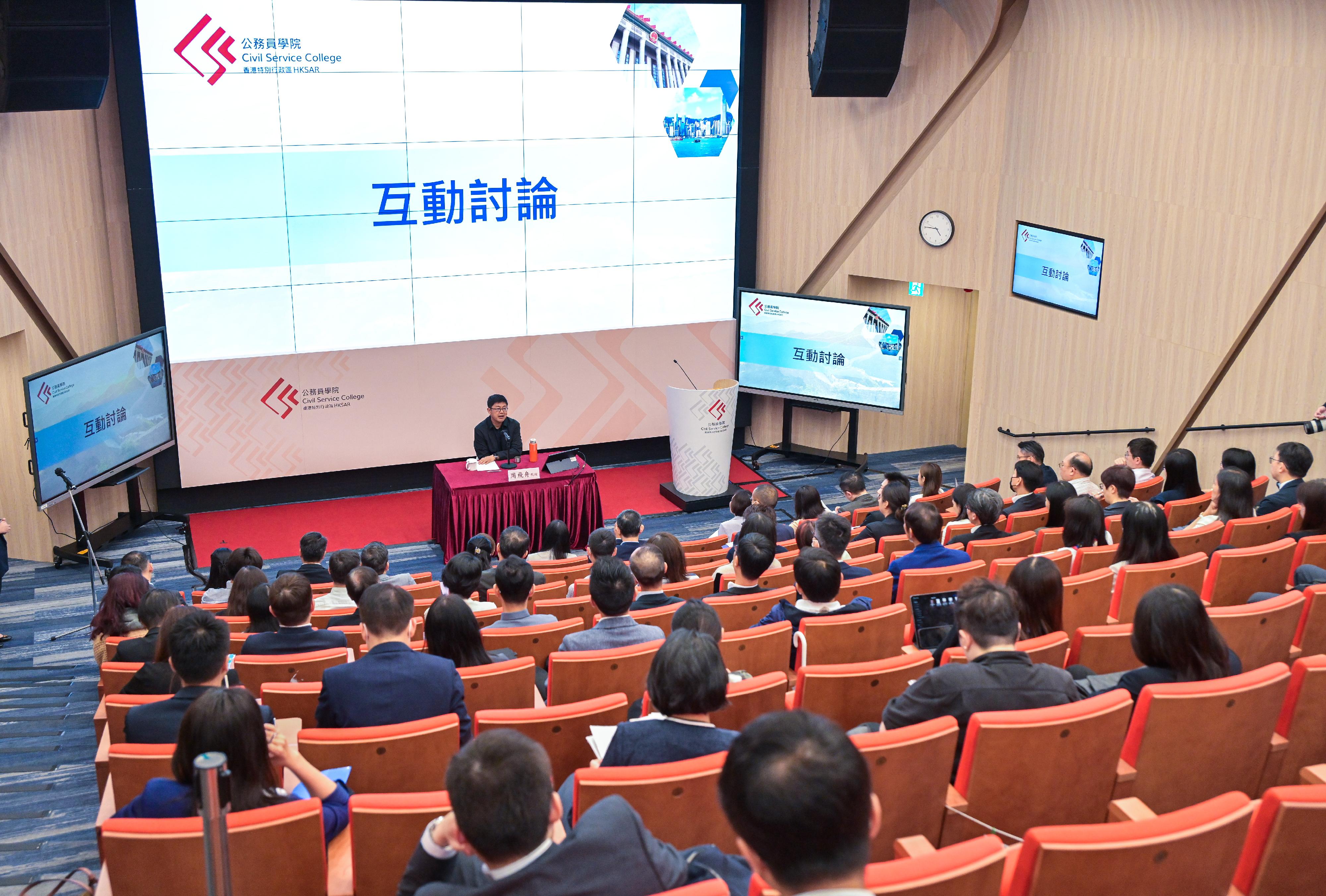The Census and Statistics Department (C&SD) released today (April 23) the Consumer Price Index (CPI) figures for March 2024. According to the Composite CPI, overall consumer prices rose by 2.0% in March 2024 over the same month a year earlier, slightly larger than the average rate of increase in January and February 2024 (1.9%). Netting out the effects of all Government's one-off relief measures, the year-on-year rate of increase in the Composite CPI (i.e. the underlying inflation rate) in March 2024 was 1.0%, also slightly larger than the average rate of increase in January and February 2024 (0.9%). The comparison to the average rate of increase in January and February is to neutralise the effect caused by different timing of the Lunar New Year between two years, which occurred in February this year but in January last year.
Comparing March 2024 with February 2024, the year-on-year rate of increase in the Composite CPI in March 2024 (2.0%) was smaller than the corresponding increase in February 2024 (2.1%). Netting out the effects of all Government's one-off relief measures, the year-on-year rate of increase in the Composite CPI in March 2024 (1.0%) was also smaller than the corresponding increase in February 2024 (1.2%).
On a seasonally adjusted basis, the average monthly rate of change in the Composite CPI for the 3-month period ending March 2024 was 0.0%, the same as that for the 3-month period ending February 2024. Netting out the effects of all Government's one-off relief measures, the corresponding rates of change were both 0.0%.
Analysed by sub-index, the year-on-year rates of increase in the CPI(A), CPI(B) and CPI(C) were 2.3%, 1.9% and 1.7% respectively in March 2024, as compared to the average rates of increase of 2.2%, 1.8% and 1.8% respectively in January and February 2024, and 2.3%, 2.0% and 2.0% respectively in February 2024. Netting out the effects of all Government's one-off relief measures, the year-on-year rates of increase in the CPI(A), CPI(B) and CPI(C) were 0.8%, 1.1% and 1.3% respectively in March 2024, as compared to the average rates of increase of 0.6%, 1.0% and 1.3% respectively in January and February 2024, and 0.8%, 1.2% and 1.6% respectively in February 2024.
On a seasonally adjusted basis, for the 3-month period ending March 2024, the average monthly rates of change in the CPI(A), CPI(B) and CPI(C) were 0.0%, 0.0% and -0.1% respectively. The corresponding rates of change for the 3-month period ending February 2024 were -0.1%, 0.0% and 0.1% respectively. Netting out the effects of all Government's one-off relief measures, the average monthly rates of change in the seasonally adjusted CPI(A), CPI(B) and CPI(C) for the 3-month period ending March 2024 were 0.0%, 0.0% and -0.1% respectively, and the corresponding rates of change for the 3-month period ending February 2024 were 0.0%, 0.0% and 0.1% respectively.
Amongst the various components of the Composite CPI, year-on-year increases in prices were recorded in March 2024 for alcoholic drinks and tobacco (17.7%), meals out and takeaway food (3.3%), housing (3.1%), miscellaneous services (2.9%), transport (2.2%), miscellaneous goods (1.2%), and clothing and footwear (0.3%).
On the other hand, year-on-year decreases in the components of the Composite CPI were recorded in March 2024 for electricity, gas and water (-8.7%), durable goods (-1.5%), and basic food (-0.5%).
In the first quarter of 2024, the Composite CPI rose by 1.9% over a year earlier, while the CPI(A), CPI(B) and CPI(C) rose by 2.2%, 1.8% and 1.8% respectively. The corresponding increases after netting out the effects of all Government's one-off relief measures were 1.0%, 0.7%, 1.0% and 1.3% respectively.
For the 12 months ending March 2024, the Composite CPI was on average 2.1% higher than that in the preceding 12-month period. The respective increases in the CPI(A), CPI(B) and CPI(C) were 2.3%, 2.0% and 2.0% respectively. The corresponding increases after netting out the effects of all Government's one-off relief measures were 1.5%, 1.4%, 1.4% and 1.7% respectively.
Commentary
A Government spokesman said that underlying consumer price inflation was modest in March. While prices of meals out and takeaway food continued to rise relatively fast, prices of basic food edged down from a year earlier. Prices of energy-related items fell further. Price pressures on other major components remained broadly in check.
Looking ahead, overall inflation should stay contained in the near term. Domestic costs may face some upward pressures as the Hong Kong economy continues to grow. External price pressures should remain on a broad downward trend, though heightened geopolitical tensions will bring uncertainties. The Government will continue to monitor the situation.
Further information
The CPIs and year-on-year rates of change at section level for March 2024 are shown in Table 1. The time series on the year-on-year rates of change in the CPIs before and after netting out the effects of all Government's one-off relief measures are shown in Table 2. For discerning the latest trend in consumer prices, it is also useful to look at the changes in the seasonally adjusted CPIs. The time series on the average monthly rates of change during the latest 3 months for the seasonally adjusted CPIs are shown in Table 3. The rates of change in the original and the seasonally adjusted Composite CPI and the underlying inflation rate are presented graphically in Chart 1.
More detailed statistics are given in the "Monthly Report on the Consumer Price Index". Users can browse and download this publication at the website of the C&SD (www.censtatd.gov.hk/en/EIndexbySubject.html?pcode=B1060001&scode=270).
The reference period of the expenditure weights currently used for compilation of CPIs is the 12-month period from October 2019 to September 2020. The C&SD plans to update it to the whole year of 2023 starting from the next reference month (i.e. the CPIs for April 2024), primarily to better reflect changes in consumption patterns brought by resumption to normalcy after the COVID-19 epidemic. The updating is technical in nature in full conformity with international recommendations, and will not involve revision to CPIs already released. More details of the updating will be provided in the next release of CPIs to be published on May 23, 2024.
For enquiries about the CPIs, please contact the Consumer Price Index Section of the C&SD (Tel: 3903 7374 or email: cpi@censtatd.gov.hk).


